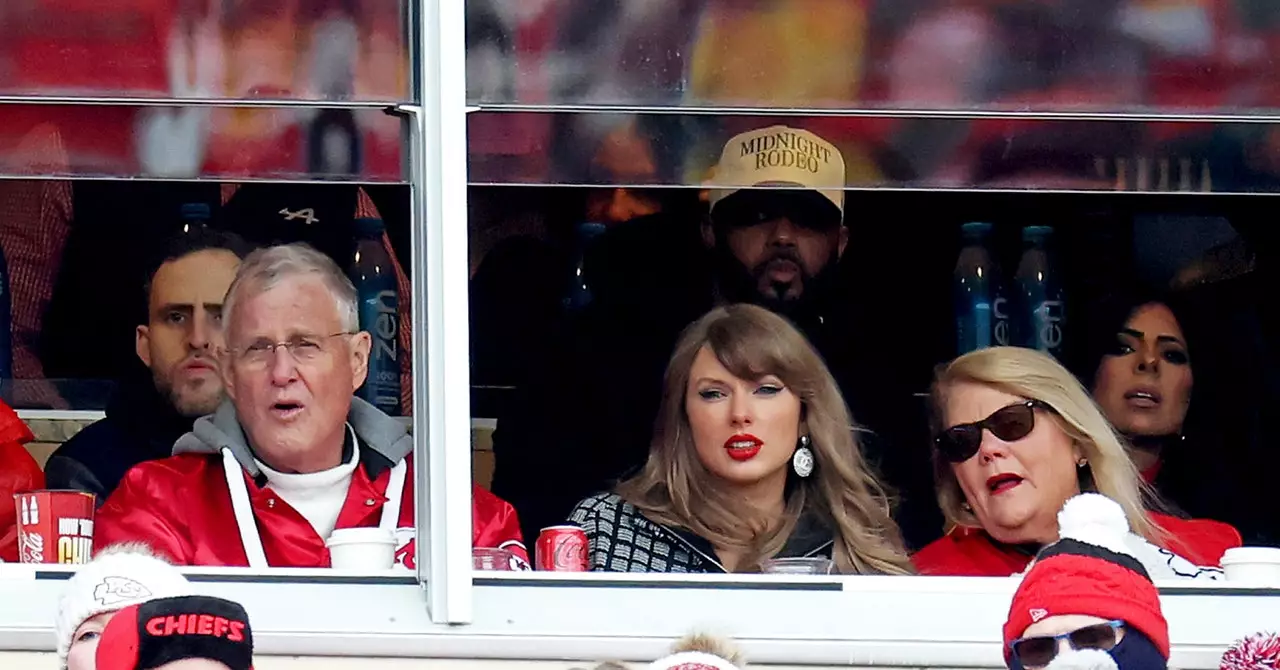In recent years, the convergence of pop culture and sports has revealed an intriguing phenomenon in the realm of sports betting—what many are now referring to as the “Taylor Swift effect.” The relationship between Taylor Swift, one of the world’s most celebrated musicians, and NFL star Travis Kelce has not only stirred interest amongst fans and media but has also significantly influenced betting behaviors across various platforms. This article aims to delve into the intricacies of this phenomenon and evaluate its implications on the sports betting landscape.
The dynamics of sports betting have evolved, reflecting the intertwining narratives of athletes’ personal lives. Major sportsbooks like FanDuel, BetRivers, and DraftKings have acknowledged the shift in their betting strategies, capitalizing on the popularity of celebrities. Tim Whitehead, the head of BetRivers, articulated that as long as Swift remains in a public relationship with one of the NFL’s biggest names, the sportsbooks would harness that narrative to broaden their audience reach. However, while the Swiftie effect initially surged, recent indications suggest a decline in its influence.
Notably, as the NFL season unfolded, the correlation between Kelce’s performance and betting activity appeared to normalize, with FanDuel reporting a leveling off of interest in bets specifically centered around him. This adjustment raises questions about the longevity of celebrity impact on sports betting and hints at the fleeting nature of such fame-driven narratives.
A 2023 study from the University of Queensland unveiled a significant gender disparity within the traditional sports betting demographic. The research indicated that approximately 90 percent of regular sports bettors are male, exacerbated by the historic male-dominated environment of physical betting spaces. Conversely, with the advent of smartphone technology, female participation has seen a gradual increase.
This demographic shift has prompted sportsbooks to rethink their marketing strategies, aiming to attract women by introducing novelty betting options like wagers on pop culture events such as the Grammys. Rohann Irving, an author of the aforementioned study, highlights how companies now seek to engage a broader demographic, aligning their offerings with contemporary cultural moments, including Swift’s influence. While women currently represent a small percentage of sports bettors—only 28 percent as of a previous survey—it is evident that there is potential for engagement through novel propositions.
While ardent sports gamblers typically rely on data-driven analyses such as player statistics, matchups, and historical performance, recreational bettors often gravitate towards engaging narratives. The Swift-Kelce relationship embodies one such story that captures the interest of casual fans and bettors alike. As Joshua Grubbs from the University of New Mexico notes, sportsbooks are actively attempting to convert non-bettors into engaged users. This strategy extends beyond merely capitalizing on a celebrity couple; it is part of a broader trend of integrating wider narratives into betting options.
Moreover, the sheer novelty of mixing pop culture with sports has created a range of betting opportunities that were once unimaginable. Prop bets focused on celebrity-related events, such as award wins or notable appearances, showcase a unique intersection between entertainment and sports that reflects changing consumer interests.
The introduction of celebrity-driven betting raises ethical questions about the gambling industry’s marketing approach. Grubbs poses a thought-provoking perspective regarding the nature of these prop bets, questioning whether they are more insidious than traditional betting options. This inquiry sits in the larger debate surrounding the appropriateness of gambling advertising. With the increasing normalization of betting on mainstream platforms, especially in connection with significant events and personalities, the conversation must encompass the broader societal implications of such marketing tactics.
Betting industry representatives express hope for future opportunities linked to Swift. Many anticipate a resurgence of interest should significant developments, such as an engagement or a family addition, occur in her relationship with Kelce. The potential for these events to captivate both sports and music fans speaks to the effective fusion of narratives that can produce heightened engagement and betting participation.
The Taylor Swift effect epitomizes the intriguing interplay between celebrity culture and sports betting. While the initial fervor may have moderated, the implications of such narratives on betting behavior remain significant. The evolving landscape suggests a growing need for sportsbooks to navigate the complex dynamics between pop culture and gambling responsibly. As the industry strives to attract a diverse audience, striking the right balance between engagement and ethical marketing practices will be crucial in shaping the future of sports betting.

